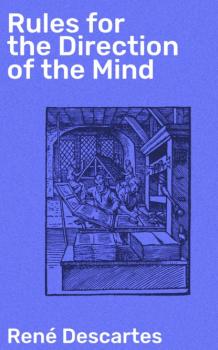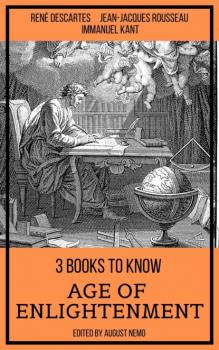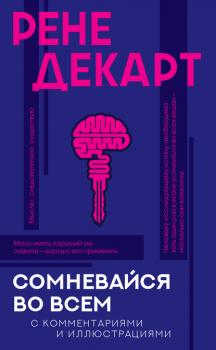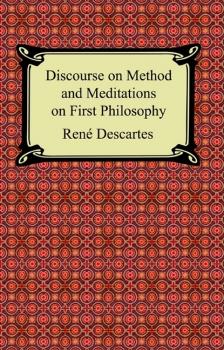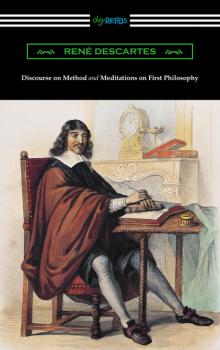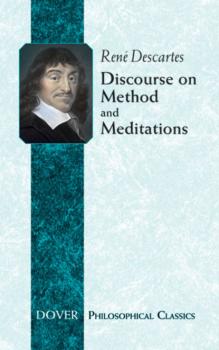ТОП просматриваемых книг сайта:















Рене Декарт
Список книг автора Рене ДекартАннотация
"Rules for the Direction of the Mind" by René Descartes. Published by Good Press. Good Press publishes a wide range of titles that encompasses every genre. From well-known classics & literary fiction and non-fiction to forgotten−or yet undiscovered gems−of world literature, we issue the books that need to be read. Each Good Press edition has been meticulously edited and formatted to boost readability for all e-readers and devices. Our goal is to produce eBooks that are user-friendly and accessible to everyone in a high-quality digital format.
Аннотация
Рене Декарт и Бенедикт Спиноза – два величайших мыслителя Нового времени; про них говорили, что они освободили философию от оков средневековья и поставили вопросы, которые навсегда останутся главными. Декарт напрямую связывал существование человека со способностью к мышлению («я мыслю, следовательно, существую»), он же утверждал, что «интеллект – это страсть».
Границы мира и познания, место и роль человека в мире, этические нормы, такие как добро и зло, любовь и ненависть, презрение и самоуничижение, совесть, – всё это с необычайной глубиной исследуется в работах Декарта и Спинозы, представленных в данной книге.
В формате PDF A4 сохранен издательский макет.
Аннотация
Las Meditaciones metafísicas, fue publicada por primera vez en 1641, en latín y posteriormente en francés en 1647. En ella se elabora el sistema filosófico que había introducido en 1637, en la 4ª parte del Discurso del método.El principal objetivo es la demostración de Dios mediante razonamientos lógicos y definir las bases del conocimiento del momento con el fin de disponerlo sobre unas bases más sólidas de las que había hasta entonces. Descartes también estudia la naturaleza dual del hombre compuesta por el pensamiento y el cuerpo. En definitiva, Descartes busca encontrar la verdad de las cosas a través de la razón.
Аннотация
Welcome to the 3 Books To Know series, our idea is to help readers learn about fascinating topics through three essential and relevant books.These carefully selected works can be fiction, non-fiction, historical documents or even biographies.We will always select for you three great works to instigate your mind, this time the topic is: Age of EnlightenmentThe Age of Enlightenment – or Age of Reason – was an intellectual and philosophical movement that dominated the world of ideas in Europe during the 17th and 18th centuries. The Enlightenment included a range of ideas centered on the sovereignty of reason and the evidence of the senses as the primary sources of knowledge and advanced ideals such as liberty, progress, toleration, fraternity, constitutional government and separation of church and state.What is Enlightenment? by Immanuel Kant.Discourse on the Method by René Descartes.The Social Contract by Jean-Jacques Rousseau."What Is Enlightenment?" is a 1784 essay by the philosopher Immanuel Kant. Kant replied to the question posed a year earlier by the Reverend Johann Friedrich Zöllner. Kant's opening paragraph of the essay is a much-cited definition of a lack of enlightenment as people's inability to think for themselves due not to their lack of intellect, but lack of courage.Discourse on the Method is one of the most influential works in the history of modern philosophy, and important to the development of natural sciences.The Social Contract by Jean-Jacques Rousseau, is a 1762 book in which Rousseau theorized about the best way to establish a political community in the face of the problems of commercial society.This is one of many books in the series 3 Books To Know. If you liked this book, look for the other titles in the series, we are sure you will like some of the topics!
Информация о книге
Автор произведения Рене Декарт
Жанр Документальная литература
Серия 3 books to know
Сомневайся во всем. С комментариями и иллюстрациями - Рене Декарт
Популярная философия с иллюстрациямиАннотация
Рене Декарт – выдающийся математик, физик и физиолог. До сих пор мы используем созданную им математическую символику, а его система координат отражает интуитивное представление человека эпохи Нового времени о бесконечном пространстве. Но прежде всего Декарт – философ, предложивший метод радикального сомнения для решения вопроса о познании мира. В «Правилах для руководства ума» он пытается доказать, что результатом любого научного занятия является особое направление ума, и указывает способ достижения истинного знания. В трактате «Первоначала философии» Декарт пытается постичь знание как таковое, подвергая всё сомнению, и сформулировать законы физики.
Тексты снабжены подробными комментариями и разъяснениями.
В формате PDF A4 сохранен издательский макет книги.
Аннотация
Contained here are two of the most important philosophy works ever written, Descartes' «Discourse on the Method of Rightly Conducting the Reason and Seeking for Truth in the Sciences» and «Meditations on First Philosophy.» Descartes, who is considered to be one of the founding fathers of modern philosophy, lays forth the basics of his philosophy and expounds upon such monumental issues as the nature of knowledge and existence itself in these two important and pivotal works.
Discourse on Method and Meditations of First Philosophy (Translated by Elizabeth S. Haldane with an Introduction by A. D. Lindsay) - Рене Декарт
Аннотация
Contained here in this volume are two of the most influential works of philosophy ever written, Descartes’ “Discourse on Method” and “Meditations on First Philosophy.” First published in 1637, “Discourse on the Method of Rightly Conducting the Reason and Seeking for Truth in the Sciences,” as it is more fully known, is a foundational work of modern philosophy which is noted for being one of the first to apply the scientific method to the discipline. Descartes approaches the subject of skepticism in philosophy by throwing away all preconceived notions of reality and building up from a base of truths he found to be incontrovertible. It is from this work that we find one of Descartes’ most famous quotations “I think, therefore I am.” This phrase alone probably best exemplifies what Descartes believed to be an incontrovertible truth. First published in 1641, “Meditations on First Philosophy” follows upon his earlier work by applying his method to a philosophical examination of the existence of God and the immortality of the soul. While the philosophical conclusions arrived at by Descartes’ work have met with criticism, his profound influence ultimately lies with his insistence on questioning everything. This edition follows the translation of Elizabeth S. Haldane and includes an introduction by A. D. Lindsay.
Аннотация
Is it possible to be certain of anything? If so, how? The father of modern philosophy and the founder of rational method in philosophical thought, René Descartes (1596–1650) sought the answers to these questions and in doing so, addressed the most important of methods of thinking and understanding truth. In <I>Discourse on Method,</I> he applies a scientific approach to philosophy that comprises four principles: to accept only what reason recognizes as «clear and distinct»; to analyze complex ideas by dividing them into smaller elements; to reconstruct the ideas; and to make accurate and complete enumerations of the data. His <I>Meditations</I> proceed according to this method, exploring the mind/body distinction, the nature of truth and error, the existence of God, and the essence of material things.
Discourse on the Method of Rightly Conducting the Reason, and Seeking Truth in the Sciences - Рене Декарт
Аннотация
The 'Discourse on the Method' is a philosophical and mathematical treatise published by René Descartes in 1637. Its full name is Discourse on the Method of Rightly Conducting the Reason, and Searching for Truth in the Sciences. The Discourse on Method is best known as the source of the famous quotation «Je pense, donc je suis», «I think, therefore I am».This is one of the most influential works in the history of modern science
Аннотация
This comprehensive eBook presents the complete works or all the significant works – the Œuvre – of this famous and brilliant writer in one ebook – easy-to-read and easy-to-navigate: • Discours de la méthode. English by René Descartes • Selections from the Principles of Philosophy by René Descartes • A Discourse of a Method for the Well Guiding of Reason by René Descartes

